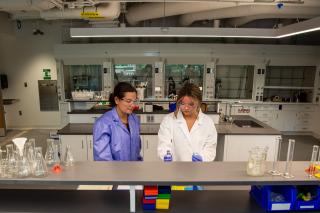How can Simmons get students comfortable with their nursing skills before expecting them to perform them off-site?
"There are fundamental skills, like placing IVs and catheters, giving injections and carrying out wound care that many students are nervous about performing for the first time in their clinical rotations," says Dr. Heather Shlosser, Associate Dean of Simmons University's School of Nursing.
To that end, Simmons University has created an 11,000 square foot Simulation Center, which includes five high fidelity simulation rooms: an obstetrician/gynecologist office (OB/GYN), a pediatric office, a medical/surgical suite, an ICU, and an ER. There is also a home health and hospice room set up like the room of a private apartment, where students can practice interdisciplinary care for people aging in place, hospice-related care, or caring for people with disabilities. There are two fundamentals labs and one health assessment lab.
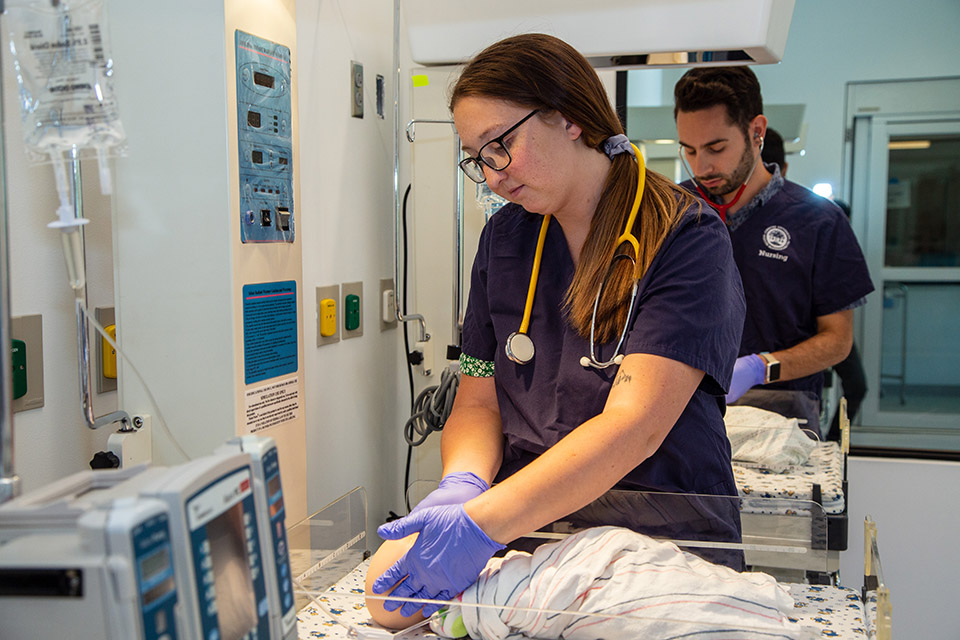
"In the simulation labs, students can practice things such as wound care, starting IVs, and feeding tubes, passing medications, and develop critical thinking skills in a safe, protected environment before their off-site clinical experience in a hospital," adds Shlosser. The two fundamental skills labs are equipped with eight hospital beds with IV pumps, feeding pumps, and hoyer lifts [a harness for lifting a patient in bed]. Simmons students conduct on-site clinical rotations — an experience made to look and feel like the real thing. There is also one health assessment skills lab where, as Shlosser states, "we carry out scenarios that simulate what will be seen in outpatient clinics, complete with the same type of exam tables, lamps, headboards, blood pressure cuffs — everything that a student will see where they work in an out-patient clinic setting as a Registered Nurse or as an Advanced Practice Registered Nurse Practitioner."
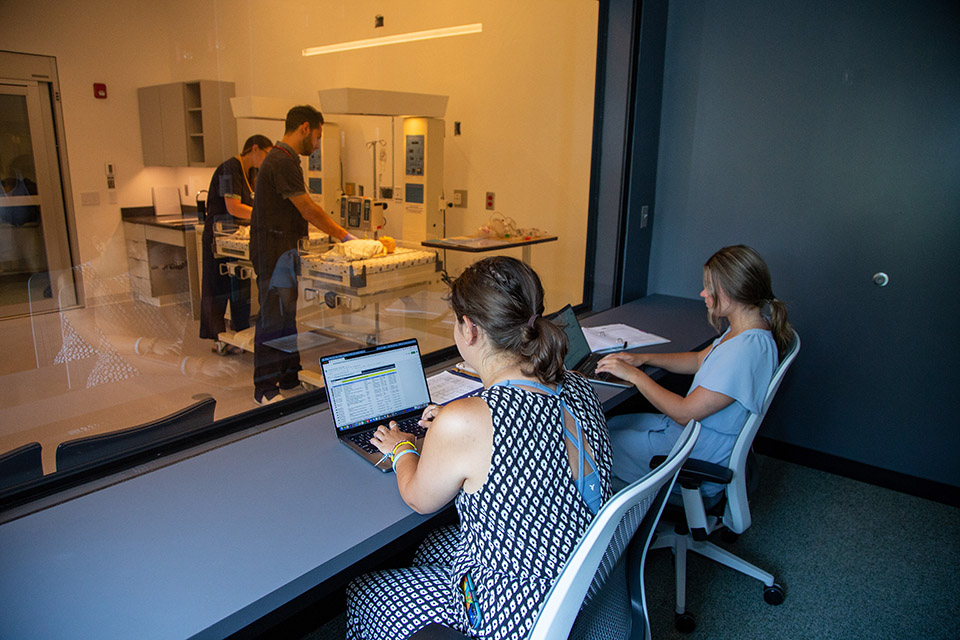
The simulation labs offer high, mid, and low-fidelity simulations, which refers to the level of technology involved. For low-fidelity simulations, the faculty member may act as the patient for a fundamental skills check: heart, lungs, musculoskeletal exam. These experiences are recorded and reviewed. For mid-fidelity simulations, students practice things such as inserting IVs and feeding pumps on manikins [specific for this purpose], as well as listen to the heart, lungs, abdomen, and conduct skin checks.
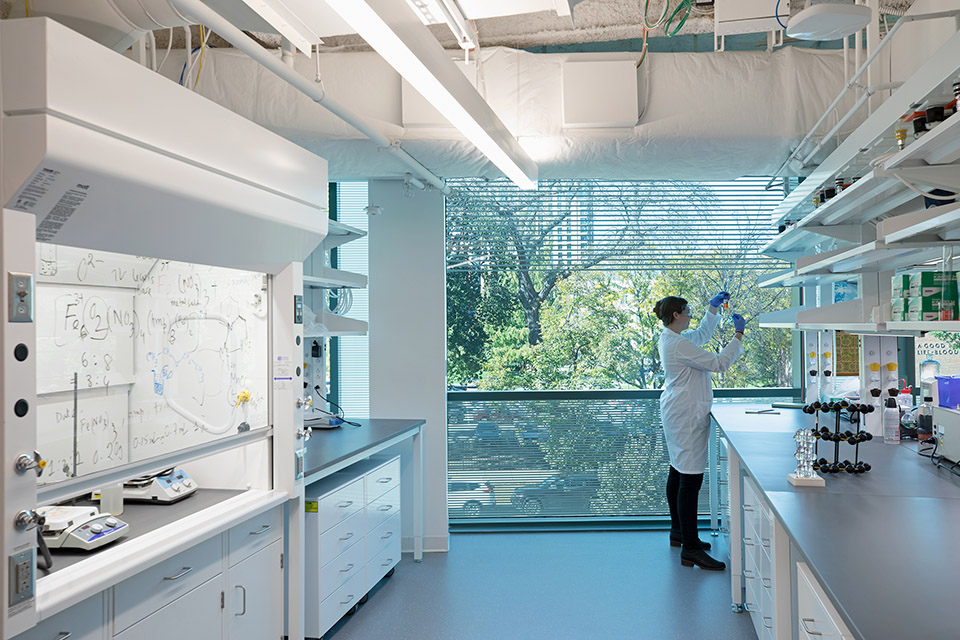
The high fidelity simulation labs use high technology simulation manikins. "The manikins have the ability to mimic human body functions such as lung sounds, heart sounds, & bowel sounds. These are realistic interactive simulators," says Shlosser, who emphasizes the value of the interaction students can have with the manikins, which are programmed for particular simulations. "There is a child manikin programmed for students doing a pediatric rotation, adult manikins for medical surgical scenarios, ICU and urgent care scenarios, and an OB/GYN simulator for obstetrical simulations," says Shlosser. "In the control room, a technician runs the simulation, and a faculty expert supervises. In the simulation room, the students care for the patient, who may cough and breathe like someone with pneumonia, for example."
After the simulation, students join the faculty in the debriefing room to watch the recording of the interaction. "We discuss their engagement style, review what they did well and what they may have forgotten to do for the patient," says Shlosser. "Students get feedback and learn more from the experience in the debrief." In the OB/GYN room, there is a manikin that will simulate a delivery so students can have the experience of assisting labor and delivery. "Students can then take the baby right to the bassinet after delivery to conduct the newborn care in a safe and protected environment for optimal learning."
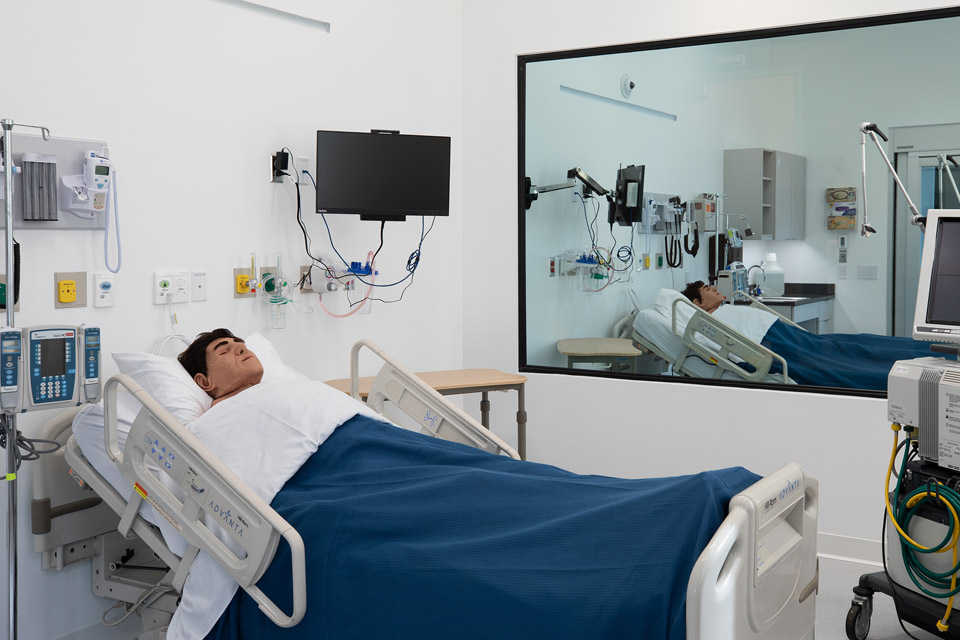
The ER and ICU includes all of the same equipment they will see in the hospital setting. "It makes a much more comprehensive clinical experience, knowing that they have practiced these skills over and over again on-site," says Shlosser. "Preceptors love this because students are more prepared for their clinical rotations, more confident, know what questions to ask, and know what they don't know by having these opportunities. It enhances their off-site clinical experience significantly."
This past October, graduate FNP students had our first cohort move through the health assessment labs during their on-campus immersion experience. "They finish all of their didactic work in advance," says Shlosser, "then they have their validation advanced health assessment exams in person in the health assessment labs, and use the other labs and simulation areas for ECG interpretation, suturing, x-ray reviews and other primary care scenarios."
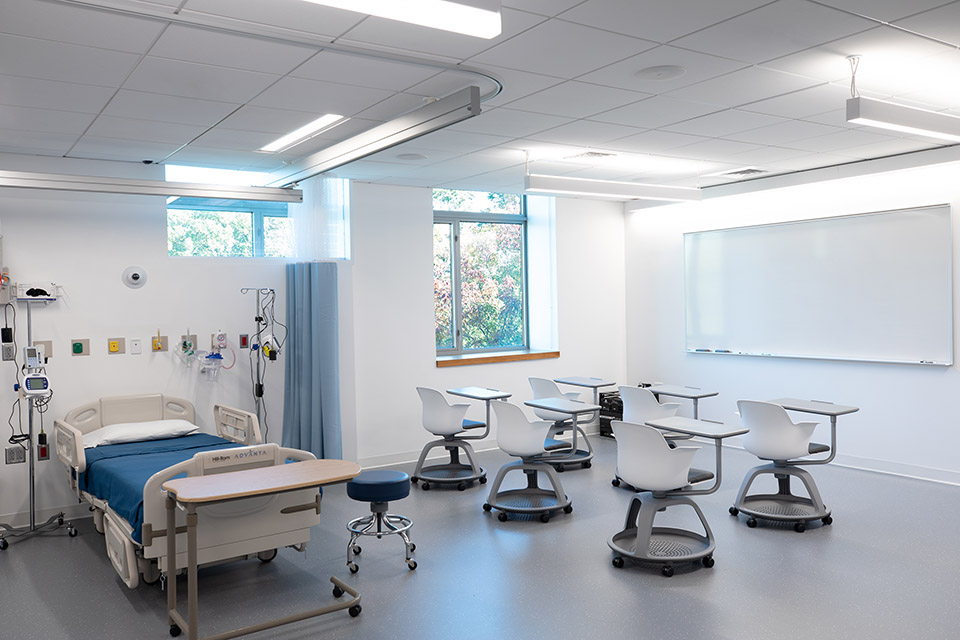
For graduate students, Simmons offers Online Family Nurse Practitioner (FNP) Program and Online Psychiatric Mental Health Nurse Practitioner (PMHNP) Program, which allows students from across the country to engage in the program. "We want our graduates to meet the need for primary care and behavioral health practitioners across this country," says Shlosser. "The students in our online programs do clinicals in their communities, and are more likely to stay in their communities. The online program is keeping people in their communities to provide culturally sensitive high quality healthcare, or we are encouraging them to move to other underserved areas to help fill the need."
Simmons graduates have higher first time pass rates for the NCLEX-RN Licensure Exam and the FNP National Board Certification Exams, compared to the national averages. Not only do students at Simmons get a large number of clinical hours, including on and off-site experiences, but all of the nursing classes have clinical experiences attached. "We offer a comprehensive, highly rigorous clinical experience to make sure our students leave Simmons as competent nurses and practitioners," says Shlosser. "Our goal is to educate empathetic, patient/family/community-centered, evidenced-based nurses and nurse practitioners."

